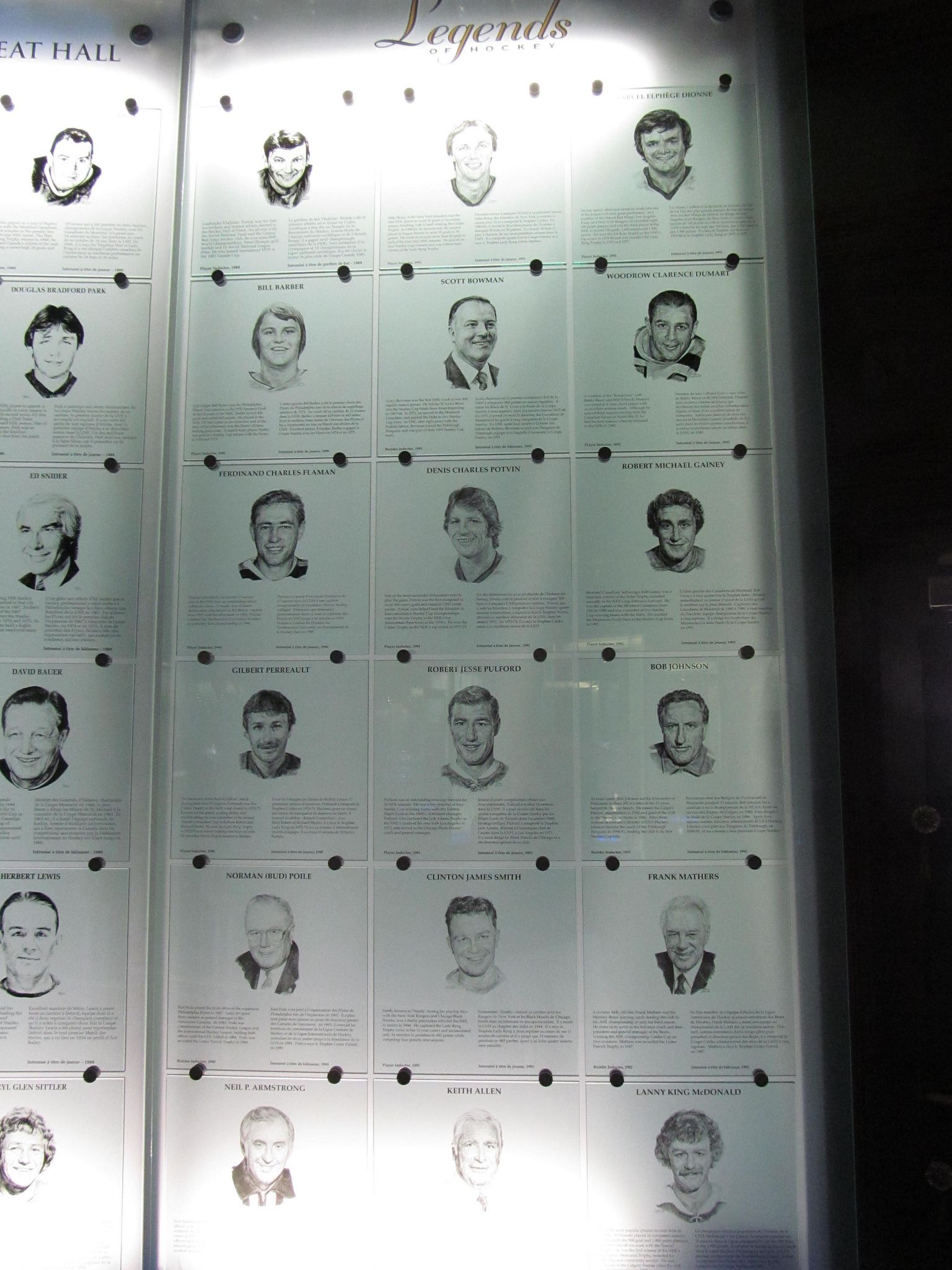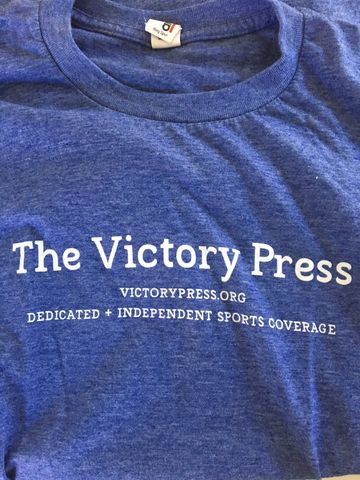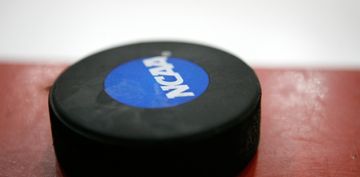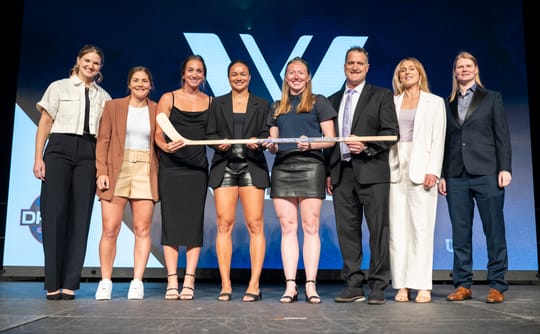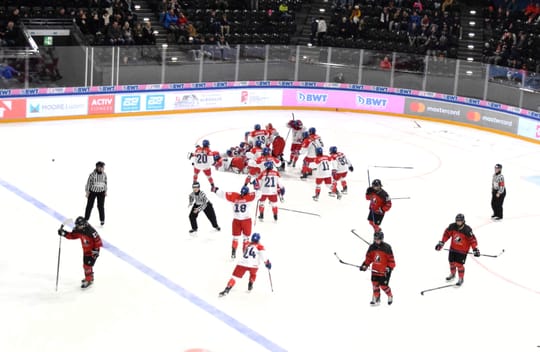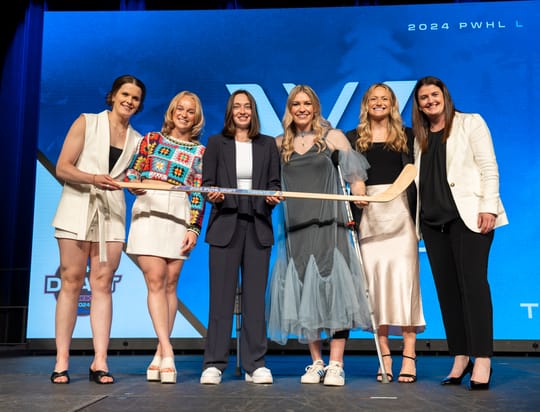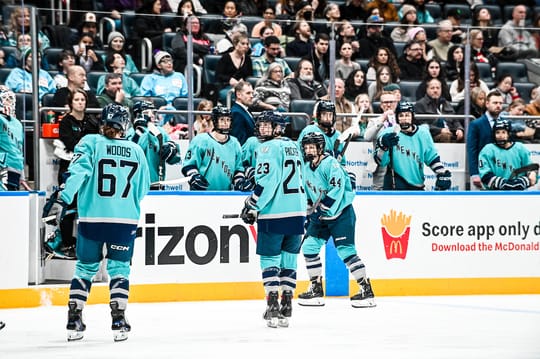On Tuesday, the Stanley Cup champion Pittsburgh Penguins visited the White House for a visit with the President, a vocal white supremacist. Such visits are customary, and many hockey fans defended the Penguins organization on those grounds. However, the organization's erroneous excuse, that visiting an oppressive head of state could be apolitical, was not arrived at in a vacuum. It came in the midst of ongoing political action in other sports leagues, such as the NFL, WNBA, and NBA. In these leagues, many players are protesting police brutality and systemic oppression against Black Americans. These protests have been going on for more than a year and risen to a higher profile in recent weeks.
Hockey pundits have focused on whether any of the league's Black players would kneel or protest during the anthem. Tampa Bay's J.T. Brown did just that when he raised his fist during the American national anthem before the Lightning's game against the Florida Panthers. If Brown's ice time on Saturday night is any indication, he risked his livelihood by raising his first -- and now faces death threats as a result of the sport's white supremacy. Brown played only 6:06, the least of any Lightning player by almost two minutes, and more than four minutes less than his TOI/GP average from last season.
But the singular focus on Black players, like Brown (or San Jose's Joel Ward or Washington's Devante Smith-Pelly) by white media members is part of the problem with hockey's current conversation about racism. Brown, Ward, Smith-Pelly and others should be free to discuss racism in the NHL, but their overwhelmingly white teammates shouldn't be given a free pass by reporters. Players of colour who are willing to speak out against injustice is not a problem in the NHL, but the league's overwhelming whiteness is. Until this reality is reckoned with, men's pro hockey will remain both racist and oppressive.
White supremacy is the defining feature of men's professional hockey leagues. The owners are white men, the commissioners are white men, the team presidents and general managers are white men, the coaches are white men, and the players are also overwhelmingly white. Money in the NHL is largely controlled by white men for the benefit of white men. The writers, radio hosts, pundits, and analysts who cover the NHL are largely white men.
Opportunities for players, coaches, and executives of colour are few. Grant Fuhr is the only Black NHL player in the Hall of Fame. Jay Sharrers became the NHL's first Black referee in 2001. Dirk Graham became the only head coach of African descent in NHL history when he coached Chicago for 59 games in 1998-99; Black assistant coaches are just as rare. Additional opportunities are rarely granted to Indigenous candidates, as Cree coach Craig Berube and Ojibwe coach Ted Nolan can attest. Kevin Weekes made history as the NHL's first Black analyst in 2009.
A league and sport in which the positions of power are firmly controlled by white men for the benefit of white men is a league that is ruled by white supremacy. A sport in which the bulk of financial capital is controlled by white men is a sport that is diminished by white supremacy.
Many who care about NHL hockey were likely hoping that the specific focus of Colin Kaepernick's protest of institutional racism in the United States would absolve the league and its players of having to deal with racial discrimination when the puck dropped on the second half of the league's centennial year. After all, only 25% of NHL players are American and only a small fraction of the 700 or so players who suit up during a given NHL season are Black. However, what should have always been clear is that the NHL has a problem with white supremacy and that the grappling with that reality requires addressing the racist specifics of hockey culture as they pertain to the NHL.
When the Pittsburgh Penguins chose to announce they would visit the White House, the team's captain, Sidney Crosby, defended the decision. It was a moment that crystallized a problem with men's hockey culture: its white supremacy is distinctly Canadian. Crosby is of course not just the Penguins' captain, but has been the face of both the NHL and of Canadian hockey for over a decade, and is widely considered to be the best men's hockey player in the world. Here, he showcased not only his apolitical nature, but also his complicity.
Historically, white Canadians have made up the bulk of NHL players. While the NHL has become truly international since the end of the Cold War, about 50% of its players are still Canadian. Influential members of the hockey media, like Don Cherry and Bob MacKenzie, are Canadian. Canadian politicians, fast food companies, artists, and beer commercials have worked for years to equate hockey with white Canadian identity -- and it's worked. Hockey culture and white Canadian culture are synonymous.
There is a pervasive joke that Canadians are "nice." But it would be more accurate to say white Canadians are more concerned with politeness than kindness, more with process than substance, and more with symbolism than with action. We object to a Black Lives Matter protest during Toronto Pride because it disrupts a celebration; we change the names of colonial institutions, but at the same time we use the full power of the federal government to deny health care to Indigenous children. White Canadians are more concerned about adherence to the social norms that have been established and maintained by white people than we are with issues of systemic racial oppression.
In his 12-year NHL career, Crosby has strategically cultivated a bland public persona that's been designed to be as non-controversial as possible. Before his recent comments on the Penguins' White House visit, his public persona projected adherence to white male social norms. Many have been tempted to defend Crosby's explanation of his team's visit to the White House as an extension of his bland public persona. Crosby was simply trying to be apolitical, as he suggested, or so the excuse goes. But that explanation ignores both the impossibility of being apolitical while engaging in political activities and that his defense of his team was more forceful than his typical public comments. Many hockey fans who oppose the current administration, both Canadian and American, would have hoped that Crosby would fulfill a moral obligation by declining to engage with a white supremacist. Instead, he repeatedly defended the decision and smilingly shook that white supremacist's hand on Tuesday. In doing so, he acted exactly in keeping with the values of NHL hockey culture.
Defenders of Crosby and of Pittsburgh ignore that they had a choice in the matter. They didn't have to go; but they chose to go anyway. The Pittsburgh Penguins chose white supremacy.
(Photo credit: Doug Kerr/Flickr under a Creative Commons license)
An earlier version of this article erroneously stated that Grant Fuhr is the only Black player in the Hockey Hall of Fame. He is the only Black NHL player. Angela James was inducted in 2010.
